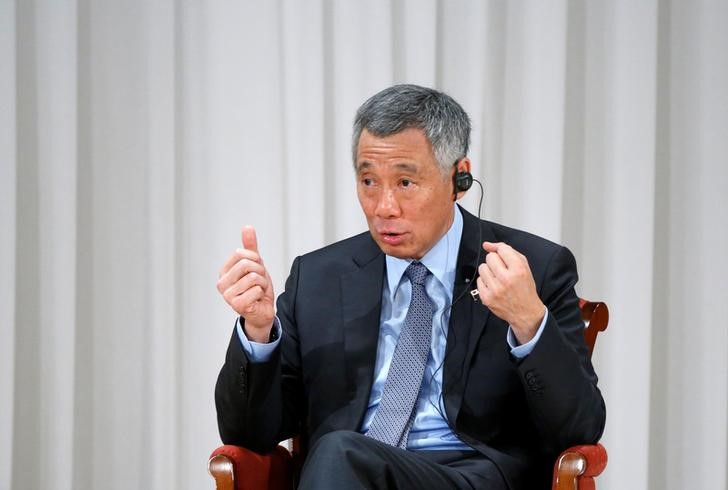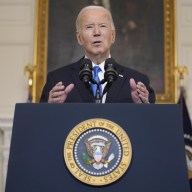SINGAPORE (Reuters) – The United States’ pull-out from the Trans Pacific Partnership hurt confidence in American policies, Singapore’s Prime Minister Lee Hsien Loong said, urging Washington to “focus” on its relationship with China. In an interview with the BBC broadcast on Wednesday, Lee said Singapore was disappointed with President Donald Trump’s decision to fulfill a campaign pledge and withdraw the United States from the long-negotiated 12-country trade deal. Singapore placed great strategic importance on the TPP as the wealthy city-state views U.S. involvement in the region as key to its economic growth and security. The deal was a pillar of former President Barack Obama’s pivot to Asia. “I think this has put a dent in the degree to which people can be confident of America’s policies,” Lee said. “But it has happened and we have to live with it.”
Singapore was ready to sign a “12 minus one” pact without the United States, Lee added, although he was not sure that was on the cards, since other countries, and Japan in particular, had made concessions in exchange for U.S. givebacks. With U.S. concessions off the table, “the political balance and economic balance has shifted,” Lee said.
Lee urged Washington to “focus” on its relationship with China for the benefit of the region.
“If America-China relations become very difficult, our position becomes tougher, because then we will be coerced to choose between being friends with America and friends with China … and that’s a real worry,” Lee said. “Right now we’re friends with both, not that we don’t have issues with either, but we’re generally friends with both, and the relationships are in good working order,” he added. “Unless you focus on this relationship, both the win-win aspects as well as the areas where you’re in contention, it can go wrong.”
Singapore has enhanced long-standing security ties with Washington in recent years, and now hosts revolving deployments of vessels and P-8 surveillance planes that regional military sources say routinely target Chinese submarines. While Singapore is not a formal U.S. alliance partner, regional diplomats say it has become Washington’s most important military relationship in Southeast Asia, more so since Philippine President Rodrigo Duterte’s election win last year. The issue of nine armored cars seized by Hong Kong customs in November and released in January was a “delicate” matter for both China and Singapore, Lee added.
The vehicles were impounded on their way home from military exercises in Taiwan, which Beijing sees as a breakaway province, and the incident fueled diplomatic tension.
But both sides “handled it carefully” and the outcome was “satisfactory,” Lee said.
(Reporting by Marius Zaharia and Aradhana Aravindan; Editing by Clarence Fernandez)
U.S. pull-out from Pacific trade deal hurts confidence, Singapore PM tells BBC

Reuters
















